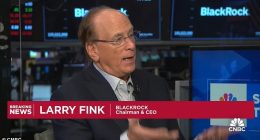On October 9, 2012, Gillard, Australia’s first and only female prime minister, had had enough.
She unleashed 15 minutes of pointed and eloquent fury in what became known as her “misogyny speech”.

The debate in parliament that afternoon was centred around speaker Peter Slipper, who had been accused of sexually harassing his former staffer James Ashby.
Highly offensive and sexist text messages Slipper sent to Ashby were revealed, however Labor decided not to remove Slipper from his position as speaker.
Opposition leader Tony Abbott used the controversy to accuse the government of sexism and misogyny.
For years, Gillard had endured sexist attacks.
There were endless comments on her appearance and her fashion choices. Her partner’s sexuality was also questioned, as was her decision not to have children.

Gillard could not let the hypocrisy stand. She stood up and delivered the words that would go on to become a seminal moment in Australian political history.
Read Related Also: Who Is Deadmau5 Girlfriend Or Spouse In 2022? Know His Ex Lindsey Gayle Evans
“I will not be lectured about sexism and misogyny by this man, I will not,” Gillard said. And the government will not be lectured about sexism and misogyny by this man. Not now, not ever. The leader of the opposition says that people who hold sexist views and who are misogynists are not appropriate for high office. Well, I hope the leader of the opposition has got a piece of paper and he is writing out his resignation.”
Watch Gillard’s full speech in the video player above.
Gillard’s speech went viral online and was picked up across the world.
That night, ‘Gillard’ was trending on Twitter, and she made headlines in the US, Britain, India, South Africa and Canada.
Gillard has since said she initially resisted the attention her speech brought, fearing it would overshadow the political legacy of her and her government.
But the former Labor leader appears to have come to terms with it, releasing a book titled ‘Not now, Not Ever’ to coincide with the 10-year anniversary of her speech.

“After staying silent, I’d had my say,” Gillard writes in her book.
“At no time did I feel worked up or hotly angry. I felt strong, measured, controlled.
“Yet emotion did play its role in the energy of the speech. The frustration that sexism and misogyny could still be so bad in the twenty-first century. The toll of not pointing it out.”







